WHICH COUNTRY DOES WHAT BEST—AND WHY DON’T WE LEARN FROM THEM?

I’m a believer that the answers to most of the problems that this country faces are out there, but we don’t solve them—or even try to solve them—in most cases because:
- The assumption is that the American Way is always best—even if the facts flatly contradict such a viewpoint.
- Despite possessing many remarkably talented people—the track record of American innovation is extraordinary—as a nation, we are just not intellectually curious; and we certainly are not internationally oriented. The U.S. Government may want to police the world on behalf of American business, but most Americans are internally focused.
- As a culture, we are notoriously poor with languages. This makes it much harder to study what other countries are up to in any detail.
- Ideology dominates our political system to the exclusion of consideration of factual evidence. Here, statements like: “Private enterprise is always better than government” simply fly in the face of the evidence. It may, indeed, be better under some circumstances. Under others, it may be a great deal worse (look no further than reconstruction in Iraq and Afghanistan). Also, much as there is contrast between well run corporations and badly run corporations, there is a vast difference between effective government and inefficient government.
Following this theme through, and limiting this exercise to a small number of fundamental areas, I have been trying to work out which country—or group of countries—does what best. The categories I have chosen are relatively small in number, but they cover the majority of the essentials.
BEST HEALTHCARE SYSTEM
TAIWAN
This was set up with the help of American expertise and shows what could be done if we adopted a single payer system and designed it from scratch. In brief, it offers a very high level of service at half the cost of the current U.S. system.
BEST K12 EDUCATIONAL SYSTEM
FINLAND
The Finnish system is drastically different to the American—and yet year after year it delivers superior results. Yet, if anything, we are evolving in the opposite direction. The U.S. system is authoritarian and test oriented. The Finnish system is focused on encouraging the student to develop at his or her own pace, allows great flexibility and depends on outstanding teachers.
BEST COLLEGE & UNIVERSITY SYSTEM
U.S.A.
This a heavily qualified judgment because though U.S. universities, at their best, seem to be the best in the world, many universities and colleges seem to be little more than mediocre—and there are serious concerns about the private sector. Add in the student debt issue—now up to a trillion dollars—and the dropout rate—and there is serious cause for concern. Quite how is a good thing to launch each generation laden with debt?
BEST AT INNOVATION
ISRAEL
This crown used to go to the U.S. automatically but we have lost considerable ground over the last few decades. Various reasons have been put forward: Short-term thinking by U.S. corporations. The poor quality of much of our educational system. The loss of much of our manufacturing base together with the innovation that goes with manufacturing.
An additional point is that, since WW II, much innovation in the U.S. has had its roots in government initiatives. However, since government investment has been cut back since the Reagan administrations, the effects have rippled through the entire economy.
Generally speaking—subject to notable exceptions like Google—large corporations are risk averse. Faced between delivering poor quarterly results and cutting back on research, research invariably suffers.
BEST HOUSING POLICIES
Here, I don’t know the answer, but I would like to because housing is so fundamental to our quality of life. What I can say is that it is not the U.S. Additionally, it is virtually certain that the most cost effective system includes significant government involvement.
Singapore, for instance, whose economic performance has been astonishing, made a point of ensuring all its population was properly housed from the beginning.
MOST COST EFFECTIVE YET FORMIDABLE DEFENSE SYSTEM
ISRAEL
Compare the U.S. and Israeli defense budgets and weep. The Israelis get so much more for their money, we should be ashamed of ourselves.
The U.S. has evolved the most expensive way of making war in the world. This benefits the deeply corrupt Military Industrial Congressional Complex and provides well paid retirement jobs for generals and other senior officers, but it is highly questionable if it serves the national interest. Consider also that we have bases throughout the world (over 1,000) and troops in something like 150 countries. How exactly does such a bloated structure really serve the U.S.?
BEST TRANSPORT INFRASTRUCTURE
EU (NORTHERN EUROPE)
It is popular to denigrate Europe at present, but much of the EU (and associated countries) actually work extremely well. This region includes Germany, Austria, Switzerland, Holland, Norway, Sweden, Denmark and Finland. You can argue about France—which remains highly successful in some areas. I would normally include the UK, which is a highly developed economy, but its current austerity policies are proving to be questionable. Still, let’s include it.
The point here is that the total population of the above countries is roughly that of the U.S. Accordingly, the argument that something which works in Europe wouldn’t work in the U.S. because America is so much larger in population terms is specious.
BEST ENERGY POLICIES
EU (NORTHERN EUROPE)
Europe uses half the energy we do on a per capita basis and is highly advanced in developing renewable resources. In addition, massive investment in rail and public transport in general has paid energy dividends.
BEST LABOR RELATIONS
EU (NORTHERN EUROPE)
Europe made its peace with labor after World War II—ironically with American help. In contrast, the U.S. approach to labor relations is essentially adversarial to the point of active hostility. Worker rights are minimal, benefits such as defined pensions are being dropped, and there is an ongoing and successful campaign against unions. Such management hostility constitutes a significant weakness when it comes to economic development, and there is currently growing evidence that worker dissatisfaction and disillusionment is impacting the economy.
BEST SOCIAL SAFETY NET
EU (NORTHERN EUROPE)
This is a matter of different philosophies. The EU, regardless of political orientation, is committed to a Social Safety Net. Much of the U.S. is not.
BEST ENVIRONMENTAL POLICIES
EU (NORTHERN EUROPE)
Recent research shows that Americans get ill more as they age than other developed nations—and die sooner. Why is this? There is increasing evidence that environmental pollution of various kinds—including pollution of our food chain—may have a great deal to do with it.
In contrast, Europe has been environmentally concerned for decades and environmental regulations are enforced. The results speak for themselves.
BEST ECONOMIC SYSTEM
EU (NORTHERN EUROPE)
Given Europe’s current troubles, this judgment will be considered contentious. However, I am talking about Northern Europe, not Europe as a whole.
It is my belief that an economic system must yield balanced results for the benefit of all the population. The U.S. system is not yielding anything like balanced results. Healthy growth which neglects the welfare of much of the population is not a satisfactory result. Similarly, booming corporate profits coupled with low wages and high unemployment are unacceptable. Further negatives are rising poverty and hunger (which government now refers to as food insufficiency).
CONCLUSION
Some may regard this piece as negative because it is critical of the U.S. I see it rather differently because its orientation is towards identifying solutions. It would be nice to think we would try some of them. It is depressing to say so, but the likelihood is that we will not.
Experimentation would be a helpful approach. Could the Taiwanese healthcare system work in the U.S? Lets find out by trying it out in a single state. Would massive investment in transport infrastructure pay off? Lets find out by trying it out in another state—or perhaps we should try regions (as in multiple states).
Above all, it would be a fine thing if we would be willing to place evidence ahead of ideology.
But that does not seem to be the American way.
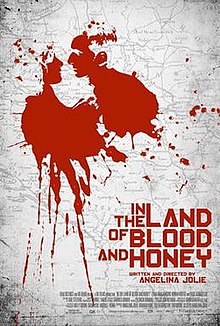 For some little time now, I have been engaged in re-writing a screenplay—not the movie in the poster--and the task has taken all my energy (and my blood into the bargain). In short, it was exhausting, but also absolutely exhilarating. As far as I am concerned, there are few things more mentally stimulating than a creative writing challenge.
For some little time now, I have been engaged in re-writing a screenplay—not the movie in the poster--and the task has taken all my energy (and my blood into the bargain). In short, it was exhausting, but also absolutely exhilarating. As far as I am concerned, there are few things more mentally stimulating than a creative writing challenge. I wrote some time ago that no one does anything alone—even if they think they do. There is almost always a support system of some type or other—even if unsung and little known.
I wrote some time ago that no one does anything alone—even if they think they do. There is almost always a support system of some type or other—even if unsung and little known. We writers, because we are communicators, have made it part of the stuff legend that writers are treated abominably in Hollywood.
We writers, because we are communicators, have made it part of the stuff legend that writers are treated abominably in Hollywood. 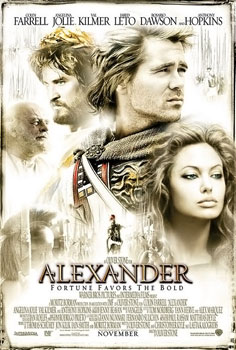 In my opinion, some of the most neglected people in the movie business are casting directors. If casting is wrong—no matter how good the screenplay and directing—the movie just won’t work.
In my opinion, some of the most neglected people in the movie business are casting directors. If casting is wrong—no matter how good the screenplay and directing—the movie just won’t work.  I enjoy a good movie from any time and place, but I seem to particularly enjoy a raft of U.S. movies made in the Seventies. Doubtless, there were many bad movies made then too—but I seem to remember only the good ones; and there were many of them.
I enjoy a good movie from any time and place, but I seem to particularly enjoy a raft of U.S. movies made in the Seventies. Doubtless, there were many bad movies made then too—but I seem to remember only the good ones; and there were many of them. Perhaps I exaggerate slightly—although I was eating blueberries (I regard them as a magic food) but it is quite true to say that I suddenly realized that all my best vacations/foreign trips had been on foot. There was no particular context to this insight. It just hit me with the subtlety of a brick.
Perhaps I exaggerate slightly—although I was eating blueberries (I regard them as a magic food) but it is quite true to say that I suddenly realized that all my best vacations/foreign trips had been on foot. There was no particular context to this insight. It just hit me with the subtlety of a brick.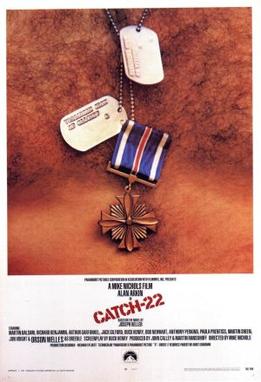 One of the commonest statements made about movies adapted from books is: “The book was better.”
One of the commonest statements made about movies adapted from books is: “The book was better.”  It makes no sense at all to work ridiculously late—because writing when tired is never a good idea, and you end up exhausted the following day. Nonetheless, I plead guilty to such foolishness. In fact, I have worked to beyond 3.00 am twice (so far) this week—and late practically every evening.
It makes no sense at all to work ridiculously late—because writing when tired is never a good idea, and you end up exhausted the following day. Nonetheless, I plead guilty to such foolishness. In fact, I have worked to beyond 3.00 am twice (so far) this week—and late practically every evening. Speaking of weapons—which we weren’t—I’d like to add a footnote to yesterday’s remarks about the Broomhandle Mauser.
Speaking of weapons—which we weren’t—I’d like to add a footnote to yesterday’s remarks about the Broomhandle Mauser.  Years ago, when I was seriously interested in photography and thought of going professional (it remains an interest) I yearned for the latest and greatest gadget—and devoured photography magazines in search of them.
Years ago, when I was seriously interested in photography and thought of going professional (it remains an interest) I yearned for the latest and greatest gadget—and devoured photography magazines in search of them. Cutting a book or a screenplay is relatively easy—especially with a computer. You just highlight what you want to cut and hit DELETE. Alternatively, you use STRIKETHOUGH or just highlight the cuts (so that you can change your mind). I generally use DELETE because I don’t cut without a great deal of thought—and then I think you must move on.
Cutting a book or a screenplay is relatively easy—especially with a computer. You just highlight what you want to cut and hit DELETE. Alternatively, you use STRIKETHOUGH or just highlight the cuts (so that you can change your mind). I generally use DELETE because I don’t cut without a great deal of thought—and then I think you must move on. Having been on the receiving end all too often where books are concerned, I truly hate the automatic tendency of editors to cut.
Having been on the receiving end all too often where books are concerned, I truly hate the automatic tendency of editors to cut.  The whole question of character development is vastly important. If people act out of character, that tends to strain credibility.
The whole question of character development is vastly important. If people act out of character, that tends to strain credibility.  There is a marvelous piece in BrainPickings on the importance of finding a fulfilling occupation.
There is a marvelous piece in BrainPickings on the importance of finding a fulfilling occupation.  The screenplay I’m working on was adapted from a fairly long book. That meant some fairly drastic cutting was required. But cutting—particularly on that scale—has consequences.
The screenplay I’m working on was adapted from a fairly long book. That meant some fairly drastic cutting was required. But cutting—particularly on that scale—has consequences.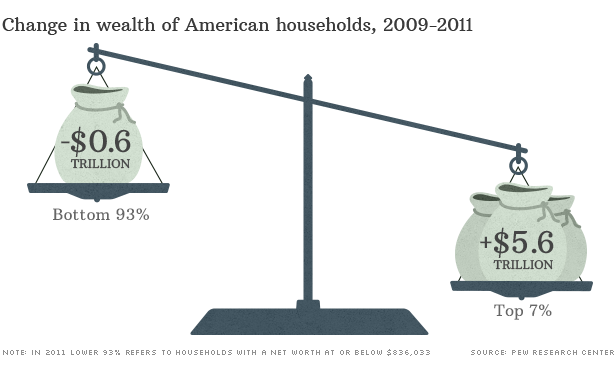
 As you may know by now—if you read the blog fairly regularly—one of my deep interests, apart from writing thrillers, is economics. Thriller writing and economics strikes many people as an odd mix—but, in fact, Economics was my major at university and, if anything, my interest in it has increased over the years.
As you may know by now—if you read the blog fairly regularly—one of my deep interests, apart from writing thrillers, is economics. Thriller writing and economics strikes many people as an odd mix—but, in fact, Economics was my major at university and, if anything, my interest in it has increased over the years.  I first ran across John Talton on the radio talking more sense on the economy than most. That piqued my interest, but it took a number of snatches of interviews before I caught his name—and decided to investigate. What I can say is that he is a thoroughly entertaining interviewee with a appealing sense of humor who has no less than ten books to his credit.
I first ran across John Talton on the radio talking more sense on the economy than most. That piqued my interest, but it took a number of snatches of interviews before I caught his name—and decided to investigate. What I can say is that he is a thoroughly entertaining interviewee with a appealing sense of humor who has no less than ten books to his credit.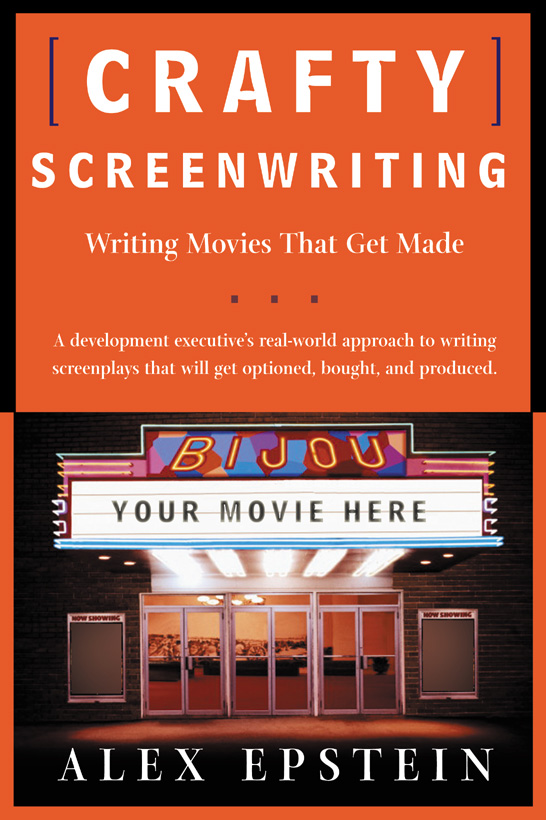 Most people call the CIA “THE” CIA. Those who work for that famously warm-hearted institution, or who otherwise are associated with it, refer to it merely as “CIA.” Along with the secret handshake, it is a sign that you are an insider—one of the guys or gals.
Most people call the CIA “THE” CIA. Those who work for that famously warm-hearted institution, or who otherwise are associated with it, refer to it merely as “CIA.” Along with the secret handshake, it is a sign that you are an insider—one of the guys or gals.  Marvelous to be back working with words again. Mind you, there are surprisingly few words in a screenplay.
Marvelous to be back working with words again. Mind you, there are surprisingly few words in a screenplay.  I have now been in my new home for two weeks and I’m settling in surprisingly well. I don’t have everything organized quite the way I want it, but at least I now know what I want to do, and what I’m likely to need.
I have now been in my new home for two weeks and I’m settling in surprisingly well. I don’t have everything organized quite the way I want it, but at least I now know what I want to do, and what I’m likely to need.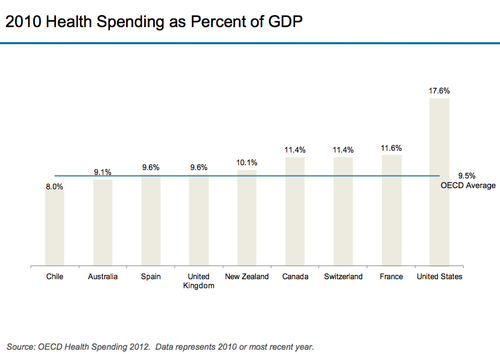
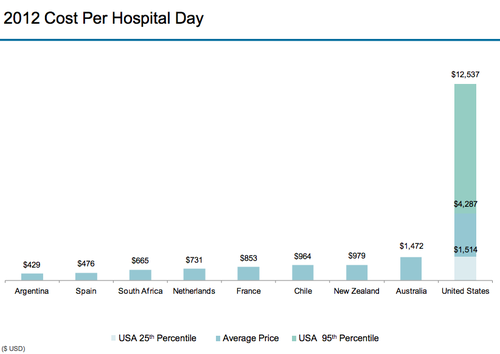
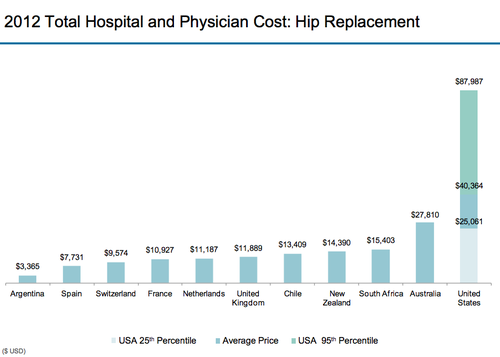



 No, I haven’t suddenly lost it—as best I can determine. I’m merely writing about my obsession with flat surfaces; and how this eccentricity tends to give me a very particular outlook on life.
No, I haven’t suddenly lost it—as best I can determine. I’m merely writing about my obsession with flat surfaces; and how this eccentricity tends to give me a very particular outlook on life. 
 Well, I have been in my new home for a week, so am still very much settling in, and catching up with sleep.
Well, I have been in my new home for a week, so am still very much settling in, and catching up with sleep.  Currently, economists are debating whether our economic problems are cyclical or structural.
Currently, economists are debating whether our economic problems are cyclical or structural.  Anyone who opts for a creative way of life—being a writer, actor, musician, painter or poet, for instance—is also opting for a life of stress. There is creative stress, which is major just by itself—Can I master my craft to the necessary standard; and then exceed it?—and then there is the stress which comes from the chronic lack of financial stability which goes with the territory—which ripples into all kinds of other problems, particularly where relationships are concerned. It is hard to be a good provider if you are an actor who is out of work most of the time.
Anyone who opts for a creative way of life—being a writer, actor, musician, painter or poet, for instance—is also opting for a life of stress. There is creative stress, which is major just by itself—Can I master my craft to the necessary standard; and then exceed it?—and then there is the stress which comes from the chronic lack of financial stability which goes with the territory—which ripples into all kinds of other problems, particularly where relationships are concerned. It is hard to be a good provider if you are an actor who is out of work most of the time.
